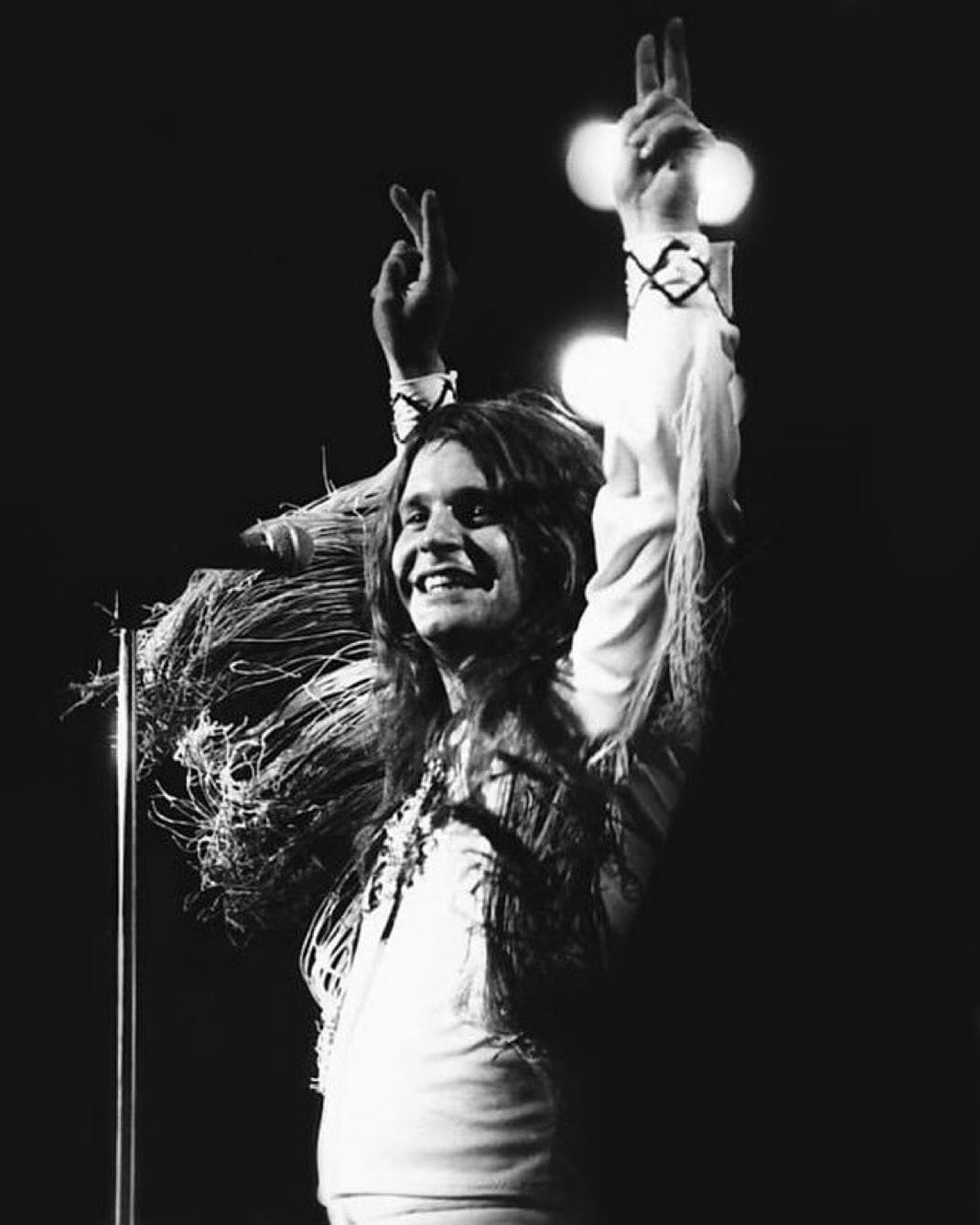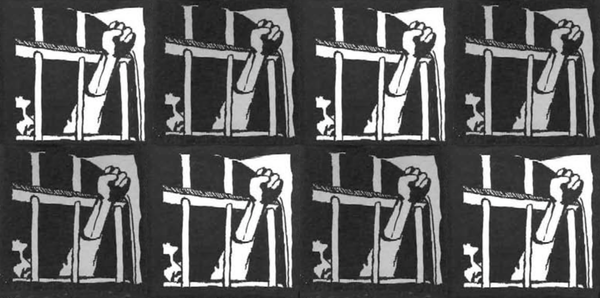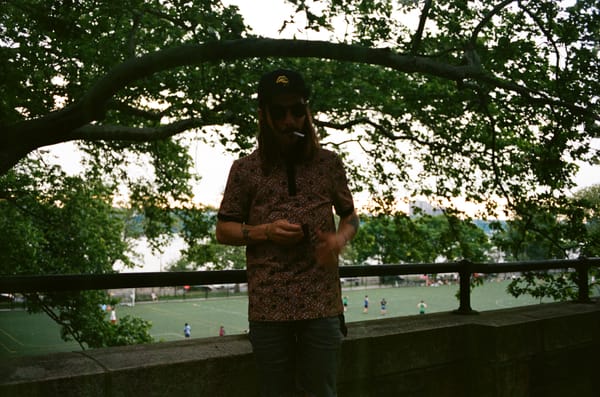Ozzy: The People's Frontman

There is rest for the wicked after all. Ozzy Osbourne died on Tuesday, July 22, 2025. He was 76.
Ozzy was born John Michael Osbourne in Marston Green, a village near Birmingham, United Kingdom. He grew up in Aston, Birmingham, an area known at the time for bombed out buildings, loud factories, and pervasive poverty. In his autobiography, Ozzy remembered seeing his mother break down crying because she couldn’t pay the bills. He lived in a two-bedroom home with three older sisters and two younger brothers. He started working at 15. One of the jobs he got was at a car horn factory, where he was scandalized to find an older man who had lost his hearing because he had worked there for so long.
At 17, Ozzy spent six weeks in prison for robbing a clothing shop. He had no money to pay the fine, and his father, John Thomas Osbourne, refused to pay it for him. It was a formative six weeks for Ozzy. He recalled being forced to mop up after a child molester who had piss and shit all over his cell. Elsewhere, he recalled meeting a pimp who was in for killing two sex workers. It was an early lesson in the horrors of the world, one that shaped the unique perspective he would bring to music.
“Ozzy Zig Needs Gig,” read the ad he posted at a local music shop when he was 19. After hearing The Beatles five years earlier, Ozzy was an instant convert to rock ‘n’ roll. The band showed him it was possible to reject factory life and make a living creating music—and not just any old music, but high-energy, youth-driven, electric guitar music. Hellbent on becoming a frontman, Ozzy posted his ad in the music shop, and was able to include that he had his own PA system, after his dad helped him purchase one (perhaps to make up for letting him go to prison).
The ad led to Ozzy getting approached by guitarist Tony Iommi and drummer Bill Ward. The dominant trend at the time was white boy blues. White British bands were covering African-American blues songs, introducing British youth to a new kind of music. At first, Ozzy’s band followed suit. They played songs by Howlin’ Wolf, John Lee Hooker, and Willie Dixon, and called themselves the Polka Tulk Blues Band, a name Ozzy took from a local Pakistani shop. It wasn’t exactly the sexiest name for a rock band, though, so they changed it to Earth. But it turned out there was already an established UK band called Earth, so they had to change it again.
A 1963 Boris Karloff film was playing at a theater near their rehearsal space. Seeing a line of people around the block waiting to get in, bassist Geezer Butler observed that people are especially drawn to horror films, and that observation led to the earth-shattering idea: What if we made horror a genre of music and called ourselves Black Sabbath?
It was the perfect counterpoint to the hopefulness and idealism of flower power. During the 1960s, people really started to believe that the world could be changed to reflect peace and love. But after a decade of assassinations, police brutality, and dreams deferred, they were primed for a new narrative. What Black Sabbath said was, this world is dark and terrible. It is shaped by war, greed, and mass manipulation. It is more hell than heaven. And it deserves a corresponding soundtrack.
They played their first show as Black Sabbath in August 1969. Within a year, they were on TV, performing on Top of the Pops, after their song “Paranoid” skyrocketed to number 4 on the UK singles chart.
“Finished with my woman ‘cause she couldn’t help me
With my mind
People think I’m insane because I am frowning
All the time”
The lyrics were written by Geezer, but Ozzy always embodied them as if they came from the depths of his own soul. Here was a frontman who was singing about mental illness, and sounded like the real thing. His wide-eyed gaze, the shudder in his voice, the shrill urgency with which he sang—he created an effect that was undeniable.
Ozzy didn’t perform minstrelsy. Unlike Robert Plant and Van Morrison and many other white blues singers, Ozzy was never trying to copy the vocal delivery of Black blues musicians. His style was always his own. What he lacked in training and refinement, he more than made up for with passion and clarity. My wife Debbie has often observed that despite being notorious for his mumbling in conversation, Ozzy was remarkably articulate when he sang—even at the very end.
After six immaculate albums, and two hastily-thrown-together lesser albums, Ozzy’s drug and alcohol consumption got completely out of control, even by the band’s degenerate standards. He was shirking his responsibilities, and so the band made the painful decision of firing him. Ozzy said he responded by locking himself away for three months and getting drunk and high all day, every day. He also said he would have died were it not for the intervention of Sharon Arden, daughter of Sabbath-manager Don Arden. Defying her father, Sharon set Ozzy up for a solo career and became his manager. In 1980, he came out with Blizzard of Ozz, one of the strongest debut albums from any band in rock history.
“People look to me and say
Is the end near? When is the final day? …
Don't look at me for answers
Don't ask me, I don't know”
Sharon married Ozzy in 1982. Decades later, they and their three kids Aimee, Kelly, and Jack became subjects of the reality TV show The Osbournes, a kind of real life Addams Family. Sharon proved a shrewd manager, even organizing the annual music festival Ozzfest. Beginning in 1996, Ozzfest brought together tons of heavy metal bands of all stripes, opening doors for some, while solidifying success for others.
Ozzy continued to come out with albums even up until 2022, when he released Patient Number 9, which saw him teaming up with Sabbath guitarist Tony Iommi again. Every fan has their personal ranking of Ozzy’s albums, but all of his eras have their strong points. Even on his weakest album, he gave us a good effort. And his last were by no means his worst.
Ozzy’s final performance was on July 5, 2025, mere days before his death. After a plethora of classic metal bands, Ozzy performed a solo set, followed by a set with the original Sabbath lineup. Unable to walk, he did both sets from a black throne. He had always known he wanted to spend his entire life rocking out. In 1981, he had said, “There’s never been a 50-year old, 60-year old rock ‘n’ roll star. I’m gonna go for it.” He defied the odds by doing it until he was 76.
It’s safe to say most people probably didn’t expect him to live that long. He took heroic amounts of drugs, and drank obscenely for decades. There are many horror stories of Ozzy. Biting the head off a dove. Biting the head off a bat. Snorting a line of ants. Shooting his pet cats. Urinating in a CBS executive’s wine. Urinating on the Alamo. He was fully infamous for public intoxication, and he came close to death on multiple occasions. As he aged, he often remarked what a miracle it was he was still alive.
Ozzy was genuine. Throughout his career, he seemed to always give people exactly what was there inside of him, even when it wasn’t pretty. He used his authenticity against his detractors and to earn the trust of his audience. His principle was, I’m not going to lie to you. I’m not going to tell you life is sunshine and roses when it’s not. I’m not going to claim to be a saint and then do evil shit behind closed doors. Ozzy was a lot of things, but he wasn’t a hypocrite.
“Tell me I'm a sinner, I've got news for you
I spoke to God this morning and he don't like you
Don't you try to teach me no original sin
I don't need your pity for the shape I'm in”
And yet, despite his reputation for being “the Prince of Darkness,” the Satan-worshipping, doom-saying, gothic poltergeist, Ozzy had a warm heart, and a simple spirit of goodwill. “Maybe it's not too late,” he sang, “To learn how to love and forget how to hate.” His songs are full of concern for the common good, for peace and justice, care for the earth, and telling the truth. He was more the rebel than the revolutionary, but his perspective was still marked by a basic moral decency.
That said, he was certainly known more for his immorality than his morality. He represented a transvaluation of values. He exposed the sinister underpinnings of polite society, and wore his depravity like a suit of armor. A self-described “likable lunatic,” Ozzy demonstrated that proximity to madness can be the same thing as divine inspiration.
He also loved his fans. At concerts, they always returned his signature greeting, two peace signs stretched high in the air—and in between, always his winsome smile. No one was better at exciting a crowd than Ozzy. He was the people’s frontman. To the end, he maintained gratitude toward his fans for sustaining him his entire career. “God bless you all,” he said, at the conclusion of his final show.
Metal did not exist when Ozzy was born, because he had to help invent it. And now it’s all over the world, in thousands of different forms. To see that much influence within your own lifetime is almost unheard of. He was a working class dropout from Aston, Birmingham, an ex-con seemingly bound for nothing else than a dead end factory life. But he soared beyond to a level of fame and glory few people in history ever know. And he inspired millions of people with his dark, heavy music.
“I've been the king, I've been the clown
Now broken wings can't hold me down
I'm free again”
Goodbye, Ozzy. Fly free.
Jack Holloway
Playlist: Ozzy - Spotify | Apple Music
This playlist features every song quoted in this post, plus essential tracks from Black Sabbath's Ozzy era and Ozzy's solo career.


